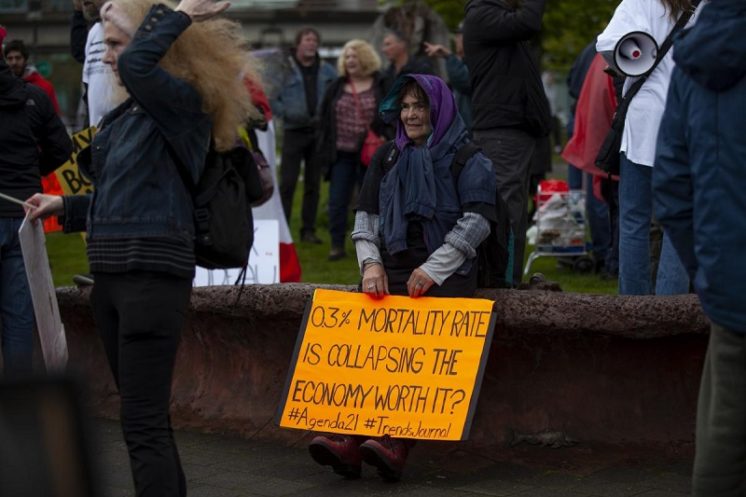On Tuesday, my friend and colleague Devaleena Das and I appeared on the KUMD program Neighbors with Lisa Johnson. It was a great experience, with a great interviewer, talking about a very difficult subject. You can listen on kumd.org.
I had some notes I hoped to use, some talking points so I would not freeze up. I didn’t need them — Lisa is a gifted interviewer. So I want to share some of them below, as an enticement to encourage you to listen more.
We keep looking for the statistic that will signal “it’s okay now.” Perhaps, if the number of cases starts falling, it will be okay. Or if the number of deaths starts falling, it will be okay. But these numbers are fraught. The number of cases went down because the state tightened the eligibility requirements for getting the then-scarce tests. That didn’t mean things were getting better. The number of cases will go up just because the number of tests go up. That doesn’t mean things are getting worse.
We cling to daily stats like we cling to checkered flag at the end of the race. But there is no single checkered flag that will signal when this race is won, not even a vaccine.
One of the keys to helping people communicate across the social divide, in this time, is helping them to let go of the checkered flag they are watching for. The unemployment stats aren’t the checkered flag any more than the case numbers are. We need to stop hoping for a single signal.
This experience (life under COVID-19) reminds a little bit of one of the things I hate about living in Duluth — waiting for spring.
I have lost so much of my life waiting, in March, waiting, in April, waiting for the next foot of snow to fall. Sometimes, I am so fixated on the next dumping of snow, I miss the joys of Spring — the moment when the grass starts to turn green, or the moment when the ground squirrels in my yard awake from hibernation.
We are waiting for the surge in COVID-19 cases the way we wait for the April blizzard.
As such, we miss the stories of Spring in our community. The media is doing its best to share them — the businesses reinventing themselves to stay alive, the kindnesses of individuals making or distributing masks. But there are so many more. (And our media is so very stretched right now.). We miss stories like Julie Gard’s poem in the literary journal Unbroken or Carolyn Olson’s paintings of Essential Workers or Tim Kaiser’s weekly Sunday night concerts — things I have shared here on PDD.
The hospitals are reopening for elective procedures — they have signaled that they are ready and prepared. The cases will go up, but the sick will be cared for, as best we can. People will still die. I hurt, thinking about that. But even if the blizzard comes, Spring is here.
That’s what I didn’t say. I hope you’ll listen to what I could say.
At the fifteen-minute mark, my friend speaks. Devaleena is one of the hidden gems of Duluth, an assistant professor in the Women, Gender and Sexuality Studies Program at UMD. She’s looking into the role of privilege in whether we experience social distancing or physical distancing, whether we experience solitude, isolation, or loneliness. I hope you’ll listen to her, too.
